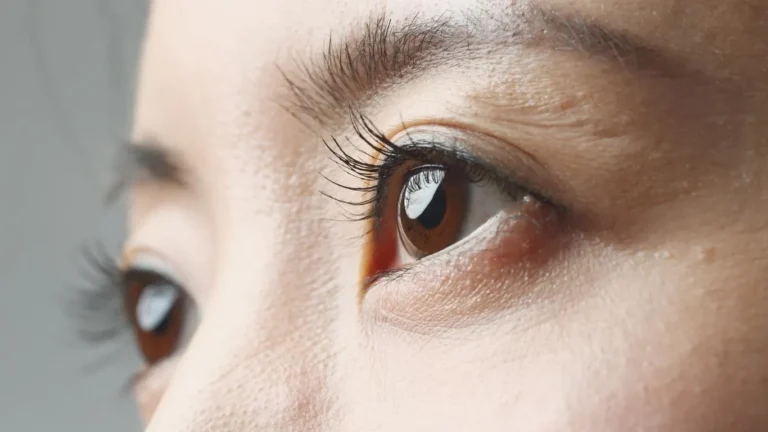Can Asthma Cause Dizziness and Lightheadedness? 🤔
Hey there, let’s talk about asthma and dizziness 🫣
If you or someone you know has asthma, you’re probably familiar with the usual symptoms—wheezing, shortness of breath, maybe even a little chest tightness. But here’s something a bit less talked about: can asthma actually make you feel dizzy or lightheaded? I get why you’d wonder about this, because it’s not exactly one of the main symptoms listed on the typical “asthma warning signs” list. But trust me, it happens. Let’s dive into why this can happen and what to do if it does.
So, what’s asthma all about? 🤧
For those of you who might not know much about asthma (or even if you do), it’s a condition that messes with your airways, making it harder to breathe sometimes. The muscles around your airways get all tight, and you end up feeling like you’re breathing through a straw. Fun, right?
This happens mostly during asthma attacks, which can be triggered by a bunch of things—like allergies, cold air, or even exercise. And yeah, asthma doesn’t always come with dizziness, but if you’re feeling lightheaded, there’s a chance it’s tied to your asthma in one way or another.

Can asthma make you dizzy? 🤔
Alright, let’s break it down. You might be wondering how exactly asthma could lead to that woozy feeling. It turns out there are a few reasons this could happen:
- 1. Oxygen shortage 🌬️When your asthma flares up, your airways tighten, and you’re not getting as much air (and oxygen) as you normally would. Your blood oxygen levels might drop, and guess what? That can lead to feeling dizzy or lightheaded. Basically, when your body isn’t getting enough oxygen, it’s like, “Hey, what’s going on here?” and you start feeling off.
- 2. Hyperventilation 💨If you’re gasping for air during an asthma attack or even just stressing about it (let’s be real, it’s scary), you might end up breathing faster than normal. This is called hyperventilation, and it can lower your carbon dioxide levels, which throws off your balance and makes you feel dizzy or lightheaded.
- 3. Medications can mess with you 💊Sometimes, the meds you’re taking to control your asthma can make you feel lightheaded, too. Inhalers or other asthma meds, like bronchodilators, work to open up your airways, but they can also make you feel dizzy or a little “off.” It’s one of those side effects that not everyone talks about, but if you’ve felt this, you’re definitely not alone.
- 4. Other stuff going on? 🧠If you’ve got asthma, you might also be dealing with other health issues (like anxiety or allergies) that can make dizziness worse. For example, anxiety can lead to shallow, rapid breathing, which can make dizziness worse. It’s like a double whammy—your asthma flaring up AND your anxiety throwing you off.

Troubleshooting your dizziness issues 🛠️
So, what can you do if you’re getting dizzy and you think it might be linked to your asthma? Here are a few things that might help:
- 1. Keep track of what’s going on 📊Start noting down when you feel dizzy or lightheaded. Is it when you’re having an asthma attack? After using your inhaler? Or maybe it’s just out of nowhere? Writing it down can help you (and your doctor) figure out what’s causing it.
- 2. Check your meds 💊If you think your inhaler or other asthma meds are to blame, talk to your doctor. They might adjust your dosage or switch you to something that’s easier on your system. Seriously, don’t be shy about it—your doctor’s there to help!
- 3. Stay hydrated 💧I know, it sounds simple, but dehydration can make dizziness worse. Drink up, especially if you’re running around or it’s hot outside. Staying hydrated helps with more than just your skin; it can make a big difference in keeping your balance steady.
- 4. Learn some breathing techniques 🌬️Okay, this one’s a bit of a game-changer. I know breathing exercises sound a little “Zen” and all, but they really work! Deep breathing can help you stay calm and avoid hyperventilation. There are some simple techniques that can help you breathe more slowly and efficiently, which might stop the dizziness before it even starts.
- 5. Get checked out if it’s bad 🚑If you’re still feeling dizzy and it’s not getting better, it’s always a good idea to go see a doctor. It might not be your asthma, but something else that needs attention. Better safe than sorry, right?

Real-life stories to put it into perspective 📚
Sarah’s Story: “I didn’t realize it was my asthma!”
Sarah was in her early 30s when she noticed that every time she went for a run, she’d get dizzy and lightheaded. At first, she thought maybe it was dehydration or just pushing herself too hard. But after a few more episodes, she realized it happened every time her asthma kicked in during exercise. Once she started focusing on her breathing and worked with her doctor to adjust her asthma meds, she was able to avoid those dizzy spells. Now she enjoys running without that lightheaded feeling—total game-changer!
John’s Story: “Turns out it was low blood pressure, too!”
John’s asthma has always been pretty bad, but in his 40s, he started noticing dizziness even when he wasn’t having an asthma attack. Turns out, he had low blood pressure, which was making things worse. After a quick check-up, he got a treatment plan that addressed both issues. Now he manages his asthma and blood pressure, and he’s feeling way better overall.

Quick Summary: Key Takeaways 📌
- Yes, asthma can cause dizziness and lightheadedness, but it’s not always a given.
- Low oxygen levels, hyperventilation, meds, or other health issues (like anxiety) can all play a part.
- Keep track of your symptoms, talk to your doctor if needed, and stay hydrated. Breathing exercises also help a lot!
- If the dizziness is severe or constant, it’s time to get checked out to rule out other problems.
FAQs ❓
Q: Can asthma cause dizziness without an attack?
Yep! Even without a full-blown attack, asthma can cause dizziness due to things like shallow breathing or low oxygen levels.
Q: My asthma meds are making me dizzy. What now?
Let your doctor know! They can adjust your medication or help you find something that works better for you.
Q: How do I know if it’s asthma or something else causing my dizziness?
If the dizziness happens with other asthma symptoms, like wheezing or shortness of breath, it’s likely linked to your asthma. But if it’s happening on its own, there might be something else going on—definitely worth checking out with your doctor.
Final Thoughts 📝
If you’ve been feeling dizzy and it’s linked to your asthma, you’re not alone. It’s more common than you might think, and there are ways to manage it. Just make sure you’re tracking your symptoms, staying hydrated, and talking to your doctor if things aren’t improving. You deserve to feel your best—both in terms of your asthma and your overall health.
Disclaimer ⚠️
This blog is meant to be helpful but isn’t a substitute for medical advice. Always check with your healthcare provider before making any changes to your treatment or meds.
So, what’s next? 👇
Have any of you experienced dizziness with your asthma? Drop a comment below or reach out to your doctor if you’re dealing with this issue. Stay safe, breathe easy, and take care of yourself!

Bianca Nala is a compassionate Nurse Practitioner with a strong background in primary and respiratory care. As a health writer for Healthusias.com, she combines her clinical expertise with a talent for clear, relatable storytelling to help readers better understand their health. Bianca focuses on topics like asthma, COPD, chronic cough, and overall lung health, aiming to simplify complex medical topics without losing accuracy. Whether she’s treating patients or writing articles, Bianca is driven by a single goal: making quality healthcare knowledge accessible to everyone.







